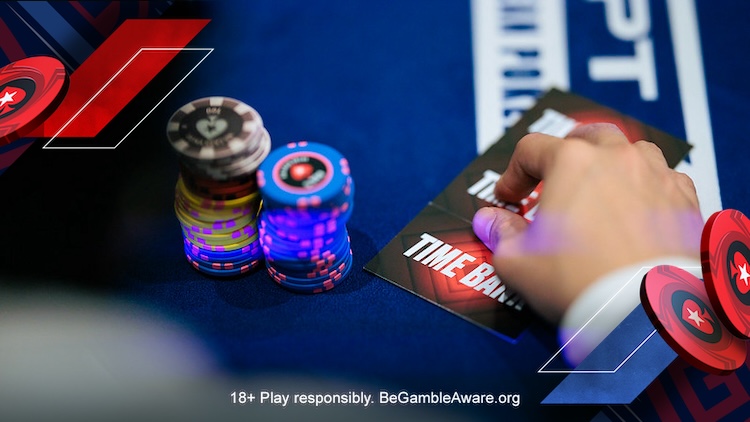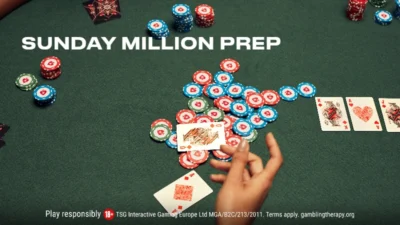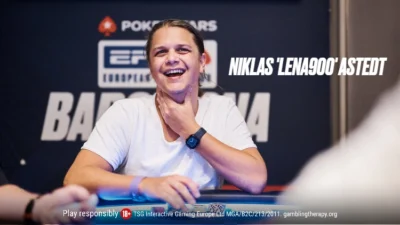The European Poker Tour’s (EPT) second trip to Paris has passed by admirably smoothly. But there was a smidgen of controversy during last night’s late stages of the Main Event when Eric Afriat lost a big pot to Barny Boatman on the TV table and decided he didn’t want to play another hand.
Afriat was still in possession of all his time-bank cards, each giving him a 30-second extension to his pre-flop thinking time. So Afriat, apparently tilting and not wanting to get any more cards from the dealer he blamed for his misfortune, continued to toss out his time-banks one by one with the stated intention of simply winding down the clock.
“I know it’s not the etiquette,” Afriat said, sitting under the gun with 4♣ 3♦ . “I want to use all my time banks. Finish those eight minutes, I get another dealer tomorrow.”
Sensing Afriat’s frustration, the other players at the table simply sat and watched. Boatman busied himself buying up the table’s blue chips ahead of a chip race. Others exchanged idle chit-chat. Even the dealer sat in silence, punctuated only by an occasional “five seconds” warning as Afriat’s time ticked repeatedly away.
Notably, nobody called a tournament official, even though the TV commentators were suggesting this needed a ruling. And so today, with the dust settled, we sought comment from EPT tournament director Toby Stone about what could have happened.
Was what Afriat did allowed? Should he have got a penalty? What would Stone have done if he had been summonsed to the table in an official capacity.

Toby Stone was not called upon to make a ruling at the time of the controversy
THE OFFICIAL LINE
“He would have got five seconds,” Stone said quickly. “He obviously just didn’t want to play and he was tilted. And he said it.”
Stone went on to explain that both the shot-clock countdown and the time-bank cards are specifically designed to be used when a player faces a tough decision and for pretty much no other reason.
“It’s obvious he didn’t have a decision to make and that’s what the time cards are there for,” Stone said. “Even the 30 seconds. That’s what it’s there for. It’s not to run it down to zero and then make a decision. You should make a decision when you know what you’re doing.”
Stone is sympathetic to players who say they want to avoid giving away timing tells, and want to stick to a strict timing pattern. But Afriat’s situation was plainly different.
“It would have been dealt with fast because we would have been able to ascertain that he’s wasting time, he doesn’t want to play, and we’d have said, ‘Well all right, you’ve got five seconds. Make a decision.’
“Maybe we’d have given him 30, as a courtesy. But we could have just given him five. You don’t need any more. You know what you’re going to do. We’d have just said, ‘You’re wasting time. You’re not using those time cards for what they’re intended for, which is to make a decision in tough spots.'”
TIME CAN BE TAKEN AWAY
Stone re-iterated that the EPT tournament rules state that the tournament staff reserves the right to reduce a player’s time for any reason, if they feel it’s warranted. Stone said he would probably not have issued a penalty for Afriat’s actions, but may have put him on a shorter clock or, more probably, suggested he simply take a walk from the table if he didn’t want to play.
When Stone talked to Afriat at the start of Day 5, the Canadian player apologised and added that he thought the time-bank cards represented his own time for him to use as he wished.
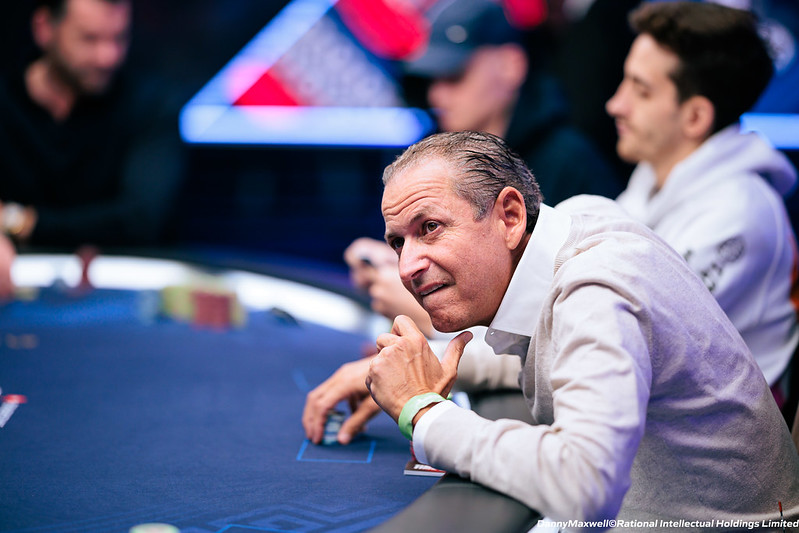
Eric Afriat made it clear that he was simply intending to wind down the clock
At the time, in the commentary booth, Griffin Benger played devil’s advocate and explained what he thought was behind Afriat’s actions.
“He’s realising that these final ten minutes were very dangerous for him,” Benger said. “It’s completely inappropriate, but that’s just what I think is going through his head.”
Stone stressed that the specific situation was rare: it was close to the end of the day, a player hadn’t previously used any time bank cards, and they were on tilt having just lost a major pot.
“I can’t recall a time when we know someone is doing that on purpose for that reason, just to make sure he doesn’t play any more hands that day because he just wanted to finish,” Stone said.
But he added that what James Hartigan referred to from the commentary booth as “timebank abuse” is far from uncommon. He suggested there’s an argument that shot clocks and time-bank cards create more problems than they solve.
ANY SOLUTIONS TO THE TIME-BANK CONTROVERSY?
“I’m sure people are using those time-banks cards for various reasons to stall,” Stone said. “For example, somebody could be coming up on the big blind and they could be short-stacked, and someone else could think that if they use three time-bank cards, they’re going to be on the bigger big blind. I’m sure that happens all the time.
“I’m sure there are other spots where you might want to use that time, but what can you do?”
What can you do? Have tournament officials got any ideas?
“We could limit the number of time banks people have,” Stone said, and added that other possible measures include shortening the length of a countdown pre-flop, where decisions should be more rudimentary.
“We’ve discussed it,” Stone said. “But we got different feedback.”
So the short version is that Afriat’s antics late on Day 4 did not go unnoticed. But it’s business as usual as the festival edges towards its climax.
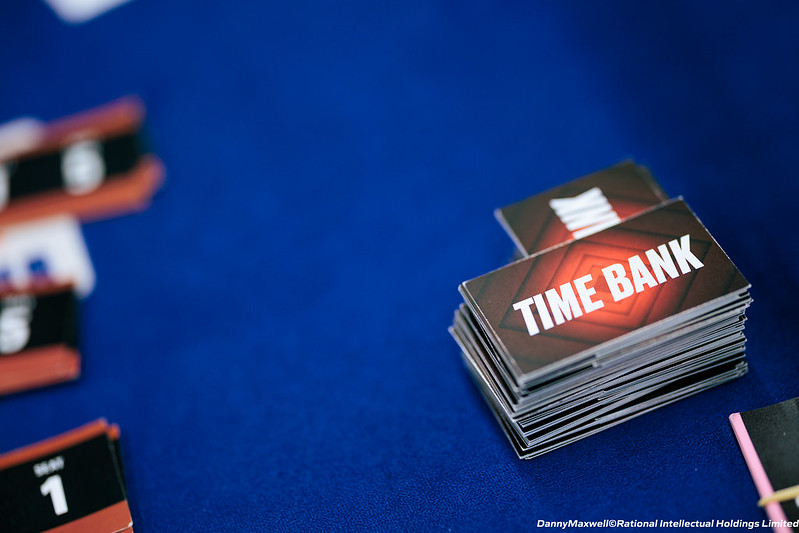
Do time-bank cards create more problems than they solve?
MORE ABOUT THE EPT
EPT official site
EPT Paris coverage hub



